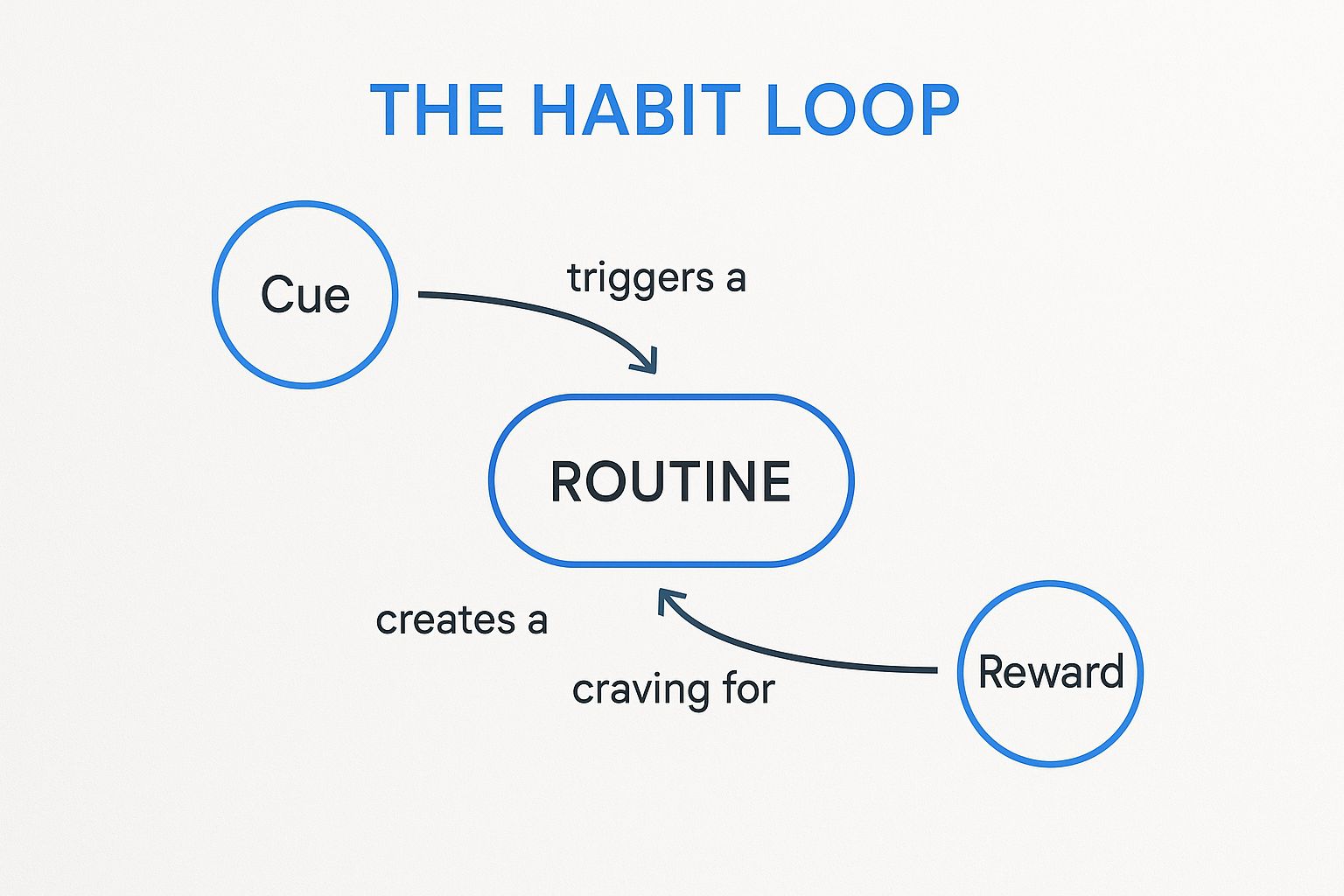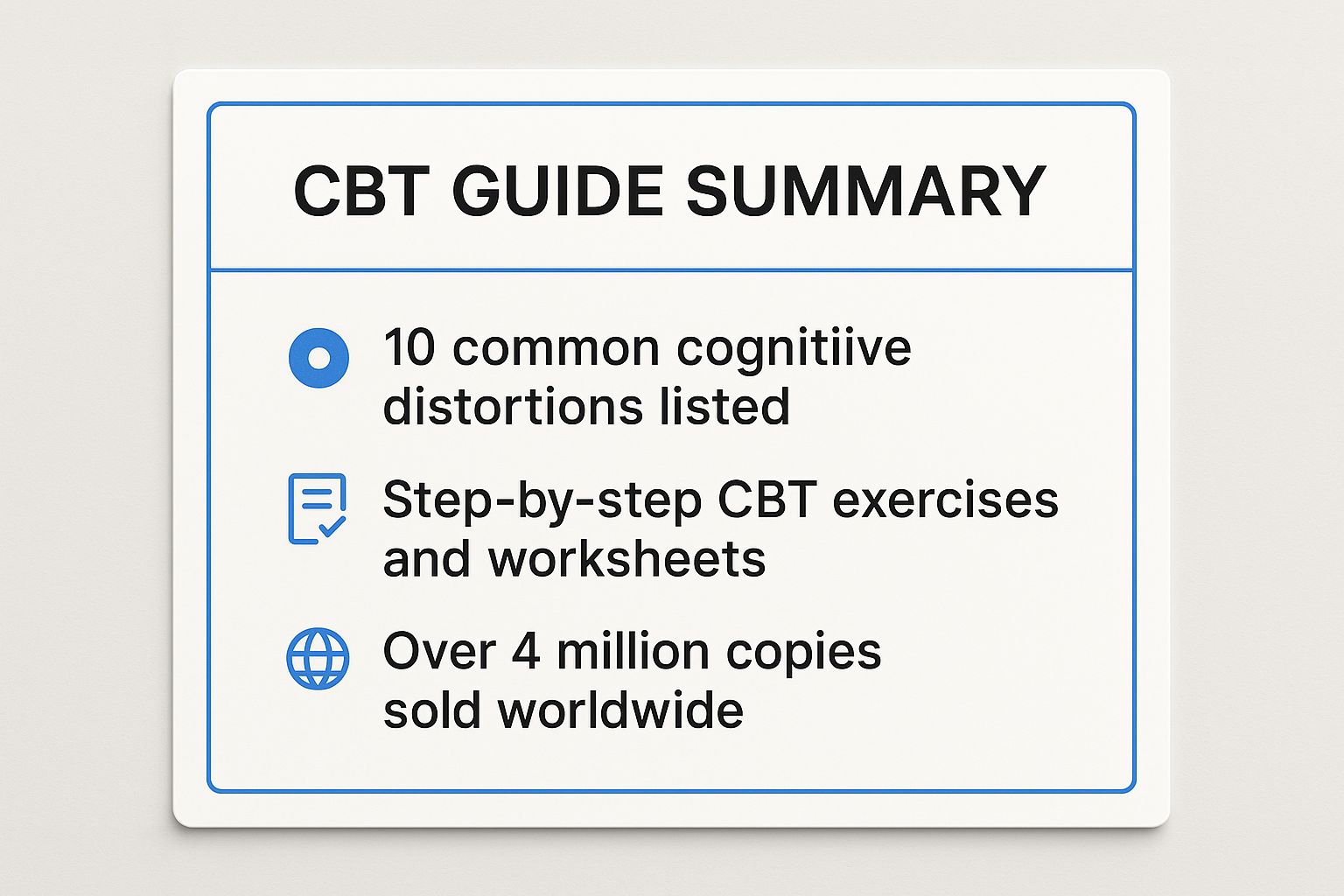Navigating life's challenges, from workplace stress to personal anxiety, can sometimes feel overwhelming. Understanding your mind is a powerful first step toward building resilience and finding a greater sense of well-being. This list of good psychology books offers compassionate guidance for your journey, helping to clarify how our minds work.
Written in simple language, these books explore why we think, feel, and act the way we do. They provide useful ways to understand challenges like burnout, anxiety, and depression, while also showing paths toward happiness and resilience. These insights can support professional help like therapy or counselling, offering valuable perspectives for personal growth.
Whether you're new to psychology or a professional managing workplace pressures, this selection offers a supportive start. The ideas are globally relatable but framed with a thoughtful, India-first context. Think of these books as companions on your journey to better understand yourself and the world around you.
1. Thinking, Fast and Slow by Daniel Kahneman
Daniel Kahneman’s Thinking, Fast and Slow is a landmark among good psychology books that helps us understand our minds. It explains that we have two ways of thinking: System 1, which is fast and emotional, and System 2, which is slower and more logical. Kahneman shows how our fast thinking can lead to common errors in judgment and decision-making.
This book is a practical guide for understanding the "why" behind our choices, from small daily decisions to big life moments. Recognising our mental shortcuts helps build clarity, which is crucial for managing workplace stress and anxiety. If you are interested in improving how you make choices, this book is a great start, and this guide to decision making under uncertainty can also help.
Who Should Read This?
This book is invaluable for anyone wanting to improve their critical thinking and make choices with more self-awareness. It is especially helpful for professionals, leaders, and students who want to understand how biases can affect decisions.
Actionable Tips
- Recognise Your Biases: As you read, notice which mental shortcuts, like anchoring or loss aversion, you see in your own thinking patterns.
- Pause and Engage System 2: In moments of stress or when facing a big choice, take a moment to pause. This can help you shift from a quick reaction to a more thoughtful response.
- Apply to Daily Choices: Practice noticing the two systems at work in everyday situations, like when you feel an impulse to buy something or react to an email.
2. Flow: The Psychology of Optimal Experience by Mihaly Csikszentmihalyi
Mihaly Csikszentmihalyi’s Flow is a key book in positive psychology, and one of the most encouraging good psychology books you can read. It introduces the idea of ‘flow’: a state of being so completely absorbed in an activity that time seems to fly. Csikszentmihalyi suggests that these experiences, where our skills meet a challenge, are the key to true happiness and well-being.

This book offers a powerful way to bring more engagement and satisfaction into our daily lives. Understanding how to find flow can be a helpful tool for managing workplace stress and finding meaning in what you do. It turns everyday tasks into more rewarding challenges and supports our overall mental wellness.
Who Should Read This?
This book is ideal for anyone feeling disengaged or seeking greater fulfillment, from professionals dealing with burnout to students and artists. It offers a practical path toward improving well-being by transforming daily activities into deeply rewarding experiences.
Actionable Tips
- Identify Your Flow Triggers: Make a list of activities that make you lose track of time. Try to schedule more of these into your week.
- Balance Challenge and Skill: Look for tasks that stretch your abilities without being overwhelming. If a task feels too easy, find ways to make it more interesting.
- Minimise Distractions: To get into a state of flow, create a quiet space free from interruptions. Turn off notifications and set aside time for focused work.
3. The Psychology of Persuasion (Influence) by Robert Cialdini
Robert Cialdini's Influence is a classic that explains why we say "yes" to requests. This book stands out among good psychology books for its practical advice, detailing six key principles of influence: Reciprocity, Commitment, Social Proof, Authority, Liking, and Scarcity. Cialdini clearly explains the psychology that makes these principles so effective in our daily lives.
This book helps us understand human behaviour in a clear, accessible way. It can serve as a guide for ethical communication and a defence against manipulation, helping you see when these tactics are being used. Understanding these principles can improve communication, reduce workplace stress, and build stronger connections with others.
Who Should Read This?
This book is great for anyone looking to improve their communication skills, from professionals in sales and marketing to anyone wanting to understand social dynamics better. It empowers you to make more conscious choices in your interactions.
Actionable Tips
- Spot the Principles: Look for Cialdini's six principles in advertisements, work meetings, and everyday conversations to better understand them.
- Give First: Practice reciprocity by offering genuine help or value to others before asking for something in return.
- Build Authentic Authority: Establish your credibility by consistently demonstrating your expertise and reliability, rather than just relying on a title.
4. Mindset: The New Psychology of Success by Carol Dweck
Carol Dweck's Mindset is a truly transformative read and one of the most empowering good psychology books. Dweck introduces a powerful idea about how we approach challenges: the fixed mindset versus the growth mindset. A growth mindset is the belief that our abilities can be developed through dedication, which helps build resilience and a love for learning.
This book explains how adopting a growth mindset can improve performance in almost every area of life. It’s not just about thinking positively; it's a way to turn setbacks into opportunities for growth. This is a crucial read for anyone feeling stuck or looking to unlock their potential and manage challenges like workplace stress and performance anxiety.
Who Should Read This?
This book is essential for parents, educators, leaders, and anyone seeking personal growth. It offers a clear path for encouraging resilience and a passion for learning in yourself and others.
Actionable Tips
- Add 'Yet' to Your Vocabulary: When you think "I can't do this," try reframing it as "I can't do this yet." This simple shift opens the door to future learning and growth.
- Focus on Process, Not Just Outcome: Praise your effort and perseverance, not just the final result. This reinforces the value of the journey and helps build resilience.
- Embrace Challenges: See difficult tasks as opportunities to expand your skills and grow stronger, rather than as threats to your abilities.
5. Man's Search for Meaning by Viktor Frankl
Viktor Frankl’s Man's Search for Meaning is a deeply moving book that stands as a pillar among good psychology books. Drawing from his experiences in concentration camps, Frankl introduces logotherapy, an approach focused on finding meaning in life. He suggests our main drive as humans is the pursuit of what we personally find meaningful.

This book offers a powerful perspective on suffering, resilience, and compassion. Frankl argues that even in the most difficult circumstances, we have the freedom to choose our attitude and find a purpose. This idea is fundamental for building psychological resilience and is often used in therapy and counselling to help people find strength in their struggles.
Who Should Read This?
This book is for anyone facing challenges, from workplace stress to personal loss, and for those seeking to understand the human capacity for resilience. It is especially helpful for those exploring questions of purpose and looking to cultivate a stronger sense of well-being.
Actionable Tips
- Reflect on Your Purpose: Take time to think about what gives your life meaning, whether it's your relationships, work, creativity, or helping others.
- Find Meaning in Hardship: When facing challenges, ask yourself what you can learn from the experience or how it can help you grow.
- Focus on Your Choices: Remember that while you can't always control what happens, you can choose your response and attitude.
6. The Power of Habit by Charles Duhigg
Charles Duhigg’s The Power of Habit is one of the most accessible and good psychology books for understanding our behaviours. It explains the "habit loop," which is at the core of every habit: a Cue (a trigger), a Routine (the behaviour), and a Reward (the benefit). This simple framework helps us understand how habits are formed and how they can be changed.
This infographic shows how these three parts work together in a powerful cycle that reinforces our habits over time.

By understanding this loop, we can learn to build more positive habits. Duhigg’s work shows how these ideas apply not just to individuals but also to organizations. This makes it a useful tool for anyone looking to manage workplace stress and build resilience through supportive routines.
Who Should Read This?
This book is helpful for anyone aiming for personal growth, from professionals to parents. It is especially useful for those looking to change unhelpful patterns, manage anxiety by building supportive routines, or improve their overall well-being.
Actionable Tips
- Deconstruct Your Habits: Choose a habit you want to change. Observe the cue that triggers it and the reward you get from it.
- Change the Routine: Once you understand the cue and reward, try a new routine that provides a similar reward. For example, if your cue is boredom, try stretching instead of scrolling on your phone.
- Focus on Keystone Habits: Start with one small, important habit, like a five-minute walk each day. Small wins can create positive momentum for other changes.
7. Emotional Intelligence by Daniel Goleman
Daniel Goleman’s Emotional Intelligence changed how we think about success, arguing that EQ can be more important than IQ. This classic among good psychology books explains that our ability to notice, manage, and understand emotions is a critical skill. Goleman outlines four key areas: self-awareness, self-regulation, empathy, and social skills.
This book is a practical guide to developing abilities that improve relationships, work performance, and overall well-being. Goleman shows that these skills can be learned and strengthened, offering practical strategies for growth. These ideas are widely used in leadership training, schools, and even in therapy to help manage challenges like anxiety and improve how we connect with others.
Who Should Read This?
This book is essential for leaders, parents, and anyone looking to improve their relationships and social skills. It’s particularly valuable for professionals aiming to manage workplace stress with greater emotional balance and build stronger teams.
Actionable Tips
- Practise Mindfulness: Take a few minutes each day for mindfulness to increase your self-awareness and notice your emotional triggers.
- Develop Regulation Techniques: When you feel overwhelmed, try simple techniques like deep breathing or a short walk to manage your emotional response.
- Listen Actively: To build empathy, practice active listening. Focus completely on what the other person is saying to better understand their perspective and feelings.
8. Atomic Habits by James Clear
James Clear’s Atomic Habits has become a go-to guide for behaviour change, making it a powerful addition to any list of good psychology books. Clear’s framework is simple: big changes come from the combined effect of many small, or ‘atomic’, habits. He provides Four Laws of Behaviour Change: make a new habit obvious, attractive, easy, and satisfying.
This book is about more than just productivity; it's about shaping your identity through small, consistent actions. By focusing on systems instead of just goals, Clear offers a sustainable path to self-improvement. These ideas can help manage everything from workplace stress to building healthier routines, supporting long-term well-being and resilience.
Who Should Read This?
This book is ideal for anyone feeling overwhelmed by big goals or stuck in unhelpful patterns. It's especially helpful for individuals looking to build resilience and improve their well-being by creating positive daily routines to manage stress and anxiety.
Actionable Tips
- Apply the Two-Minute Rule: Start a new habit by making it take less than two minutes. To read more, read one page. To exercise, just put on your workout clothes.
- Habit Stack: Pair a new habit with an existing one. For example, after your morning cup of chai, you will meditate for one minute.
- Design Your Environment: Make cues for good habits visible. If you want to drink more water, keep a water bottle on your desk.
9. The Body Keeps the Score by Bessel van der Kolk
Bessel van der Kolk's The Body Keeps the Score is a transformative read on trauma, making it one of the most essential good psychology books today. It explains how difficult experiences can affect both the body and the brain, influencing our feelings, self-control, and trust. The book shows that trauma is not just a past event but something our bodies can hold onto. It is important to remember that the assessments in this book are informational, not diagnostic.
Van der Kolk explains how trauma can rewire the brain's emotional centres and explores treatments beyond traditional talk therapy. He discusses mindfulness, body-based therapies, and other approaches that help people heal and build resilience. This compassionate work has been vital in creating more supportive care in mental health and other fields.
Who Should Read This?
This book is crucial for mental health professionals like therapists and counsellors. It is also an invaluable, though sometimes intense, resource for those who have experienced trauma and their loved ones, offering a scientific framework for understanding the path toward recovery.
Actionable Tips
- Approach with Care: The content can be emotionally challenging. Read it in small sections and prioritize your well-being.
- Focus on Hope: Pay attention to the parts about recovery and resilience. The book highlights the incredible human capacity to heal.
- Seek Professional Support: Use the insights as a starting point for discussion with a therapist or counsellor rather than as a self-help guide.
10. Predictably Irrational by Dan Ariely
Dan Ariely's Predictably Irrational is a fascinating look into why we often make illogical choices. Through fun and insightful experiments, Ariely shows that our irrational behaviours are not random but happen in predictable patterns. He uncovers the hidden forces, from emotions to social norms, that shape our decisions every day.
This book is a key text among good psychology books because it decodes the illogical patterns behind our choices. Understanding these patterns can help us make better financial decisions, create healthier habits, and improve our well-being. It shines a light on the mental glitches that affect us and helps us see how easily we can be influenced.
Who Should Read This?
This book is essential for anyone curious about the real drivers behind human behaviour. It is particularly insightful for those looking to make smarter choices, improve their negotiation skills, and understand the subtle influences that affect their daily lives and workplace stress.
Actionable Tips
- Question Relative Value: Notice when you are comparing options side-by-side and ask if a "decoy" option is influencing your choice.
- Use Pre-commitment: To overcome procrastination, commit to a goal publicly or create a system that makes it harder to back out.
- Beware the "Free" Trap: Recognise that the offer of something "free" can sometimes lead you to make a poor overall decision.
Top 10 Psychology Books Comparison
| Title | Core Features/Insights | User Experience/Quality ★★★★✩ | Value Proposition 💰 | Target Audience 👥 | Unique Selling Points ✨ |
|---|---|---|---|---|---|
| Thinking, Fast and Slow | Dual-system cognition, cognitive biases | ★★★★✩ Dense but foundational | 💰 High value for understanding decisions | Academics, psychologists, decision-makers | 🏆 Nobel laureate insights, behavioral economics integration |
| Flow: The Psychology of Optimal Experience | Flow state theory, happiness & performance framework | ★★★★✩ Actionable yet sometimes abstract | 💰 Practical for life fulfillment | Educators, therapists, professionals | ✨ Positive psychology pioneer, cross-domain applicability |
| The Psychology of Persuasion (Influence) | Six persuasion principles, ethical influence | ★★★★✩ Clear, engaging | 💰 Applicable in sales & marketing | Sales, marketers, negotiators | 🏆 Decades of research, ethical use focus |
| Mindset: The New Psychology of Success | Fixed vs. growth mindset framework | ★★★★✩ Simple, practical | 💰 Useful in education & corporate training | Parents, educators, managers | ✨ Focus on mindset shift for success |
| Man's Search for Meaning | Logotherapy, meaning in suffering | ★★★★✩ Profound, inspirational | 💰 Timeless wisdom, accessible | Trauma survivors, counselors | 🏆 Holocaust survivor insights, existential psychology |
| The Power of Habit | Habit loop (cue-routine-reward), neuroscience | ★★★★✩ Engaging, practical | 💰 Clear behavior change framework | General self-improvement seekers | ✨ Neuroscience-backed, multi-level habit analysis |
| Emotional Intelligence | Four EQ domains, neuroscience of emotion | ★★★★✩ Accessible, practical | 💰 Broad applications in leadership | HR, educators, general readers | 🏆 Popularized EQ, assessment tools |
| Atomic Habits | Four Laws of Behavior Change, identity-based habits | ★★★★★ Highly practical, actionable | 💰 Modern, research-based system | Productivity enthusiasts, trainers | ✨ Habit stacking & 1% improvement philosophy |
| The Body Keeps the Score | Trauma neuroscience, mind-body healing | ★★★★✩ Deep, scientific but heavy | 💰 Innovative trauma treatment insights | Trauma survivors, therapists | 🏆 Integrative therapy modalities, clinical case studies |
| Predictably Irrational | Behavioral economics experiments, cognitive biases | ★★★★✩ Entertaining, evidence-based | 💰 Improves decision-making skills | Behavioral economists, marketers | ✨ Interactive experiments, challenges rationality assumption |
Continuing Your Path to Greater Well-being
Reading these good psychology books is an invitation to understand yourself and your experiences more deeply. From understanding how we think to finding meaning in difficult times, each book offers a unique lens. You've explored how habits are formed, how emotional intelligence shapes our connections, and how a growth mindset can foster resilience.
These works share a powerful truth: greater self-awareness is the foundation of lasting well-being. The insights from these authors provide a practical toolkit for navigating challenges like workplace stress and anxiety. They empower you to recognise your thought patterns, cultivate moments of flow, and build the small habits that lead to meaningful personal growth.
Supportive Takeaways for Your Journey
Reading is a wonderful start, but the real change happens when we apply these ideas with self-compassion. This journey is about progress, not perfection.
- Practice Gentle Observation: Start by noticing your own thought patterns without judgment. Are you in a fixed or growth mindset? Simply observing is a powerful act of self-awareness.
- Identify One Small Habit: Inspired by Atomic Habits, choose one small, kind action for yourself. Focus on consistency over intensity to build momentum.
- Integrate Holistic Practices: The mind and body are connected. To support the insights you've gained, consider a guide to a holistic wellness approach for your daily life.
This journey of understanding is ongoing. The path to managing challenges like anxiety or depression is built one step at a time, supported by knowledge and self-compassion. These books are helpful companions, but they are not a substitute for professional support from a therapist or counsellor if you need it. The goal is to build lasting resilience and a deeper, more meaningful connection with yourself.
While these books provide an excellent foundation for self-understanding, applying these principles to your unique challenges can be difficult alone. For personalised guidance and support on your mental health journey, consider exploring the confidential and accessible therapy services offered by DeTalks. Our professional counsellors can help you translate these powerful psychological insights into practical strategies for your life.




